Hi all,
XBB.1.5 still represents 90% of cases in the US this week. XBB.1.5 is very immune evasive and many people got their bivalent booster 6 months ago. We do not know yet if spring bivalent boosters will be approved, but we know that vaccine efficiency decreases significantly by 6 months, especially in older adults and immunocompromised people. Katelyn Jetelina and Jeremy Faust discuss the data here. A few new variants have shown up in the US in very low percentages (XBB.1.9.1 and XBB.1.5.1) but our collective immunity wall is expected to stop them from rapid growth. US wastewater looks good again this week.
The FDA is looking for people with Long COVID and their caretakers to give their input at a meeting on April 25th. This week, Eric Topol MD wrote an article on the 4 things that can help prevent Long COVID in someone who gets an acute COVID infection. These include Novid- avoiding getting a COVID infection, vaccination (43% reduction of Long COVID), as well as two medications that can reduce Long COVID if taken when someone has a COVID infection, namely Metformin (42% reduction in Long COVID),and Paxlovid (26% reduction of Long COVID). There are not many treatments for Long COVID at this point, but Dr. Topol references an article in Rolling Stone magazine that interviewed Dr. Linda Geng of Stanford’s Long COVID clinic. She and others are using low dose naltrexone (LDN) to reduce inflammation and some places are starting trials on Paxlovid to treat Long COVID. Paxlovid makes sense if someone’s Long COVID symptoms are related to persistent virus in the body that causes the immune system to go haywire.
Another possible cause of Long COVID in some people may be microclots that block the tiniest capillaries and make it hard for oxygen to go to the tissues. A preprint study from Pretorius and Kell this week showed that in 91 patients with Long COVID, giving them triple anticoagulation (Plavix, baby aspirin and Eliquis) resulted in about 80% of patients feeling that their Long COVID symptoms resolved significantly. This was not a randomized trial and there was no control group. Even if triple anticoagulation could help some people with Long COVID, anticoagulation use poses a significant risk of bleeding and patients would need to be monitored very closely.
This week there were 3 controversial articles on Long COVID- one in Slate and two in the Washington Post. These articles downplayed the numbers of people with Long COVID and the amount of disability that Long COVID causes. Long COVID experts and people living with the disease responded to the Slate article here. The Washington Post posted an article in which the newspaper “did their own research” by retrospectively reviewing EMR records. Epidemiologist Dr. Deepti Gurdasani responded in this thread about how this “research” was flawed.
Dr. Leana Wen wrote an opinion piece in the Washington Post about Long COVID. She said:
“We might come to expect some frequency of post-covid symptoms, and the resulting disability, as a “new normal.” In that case, health resources must shift from avoiding the coronavirus to reducing and treating its worst consequences — including long covid.” - Dr. Leana Wen
Physicians and others on Twitter were shocked by Dr. Wen’s viewpoint, responding that we would not accept disability as the “new normal” for polio or for other diseases and we should not for Long COVID either.
One of the points made in the Slate article was that Omicron infections are less likely to cause Long COVID than the original SARS-CoV-2 virus. An article in Science magazine does show that Omicron infections are less likely to result in Long COVID because of vaccination and possibly because Omicron may be less virulent. But, even if a smaller percent of people who get an Omicron infection get Long COVID, Omicron because of its immune evasiveness has infected many more people than the original virus did. Therefore, a significant number of people may get Long COVID after Omicron infections just because Omicron infects so many.
Dr. Eric Topol, long COVID patient and researcher Julia Vogel discussed Long COVID with Prof. Trisha Greenhalgh of Oxford and others this week. The group discussed how doctors and others have been dismissing Long COVID as being a “functional disorder”, or a psychiatric issue. As Dr. Topol said, “Dismissing [Long COVID] has become a part of the disinformation/ misinformation world that we live in.” He also discussed how Long COVID does not yet have many treatments and how it will be an enduring legacy from the pandemic.
In other COVID news this week, getting a COVID infection before vaccination led to a weaker T cell response to the vaccine. An article in Nature magazine shows that the SARS-CoV-2 virus can rewire host chromatin, turning off genes for interferon and turning on pro-inflammatory genes. These may cause long lasting consequences of the virus.
A “sherpabody” is an antibody-like molecule given by nasal spray that was shown to prophylactically prevent and to treat SARS-CoV-2 infections in mice. This may be promising technology, but it would need to go through many human studies before it could be approved by the FDA. China has approved their first mRNA vaccine against COVID. Until now, they used Sinopharm and Sinovac vaccines that were not as effective and had refused mRNA vaccines from other countries.
In other science and health news, immune system cells in the colon called intestinal gamma delta T cells (γδ T cells) are linked to stress-induced depression via dectin-1 signaling. It was discovered that MRSA and other staphylococcus aureus bacteria may be treated with endolysins in the future. Unexplained female infertility can be associated with some genetic disease variants. Mailed home HPV test kits can pick up cervical cancer for less cost. MacKenzie Scott sets a new 'open call' to donate $250 million to 250 community-focused nonprofits. And finally, daily five-minute cyclic sighing (big exhalations) has promise as an effective stress management exercise and works better than mindfulness meditation.
Have a good weekend,
Ruth Ann Crystal MD
Other news:
3/20/23 Sci Daily: New evidence: Immune system cells in the gut linked to stress-induced depression https://buff.ly/401dI8x
"The results of our study highlight the previously unrecognized role of intestinal gamma delta T cells (γδ T cells) in modifying psychological stress responses, and the importance of a protein receptor known as dectin-1, found on the surface of immune cells, as a potential therapeutic target for the treatment of stress-induced behaviors," Atsushi Kamiya, M.D., Ph.D.
3/20/23 Nature Immunology: Dectin-1 signaling on colonic γδ T cells promotes psychosocial stress responses https://buff.ly/3LFCHdk
3/17/23 Sci Daily: Resistant bacteria are a global problem. Now researchers may have found the solution https://buff.ly/40lpXMV
A new substance called endolysins has proven capable of killing both resistant and non-resistant staphylococcus aureus -- without the need for antibiotics.
3/6/23 J Invest Derm (Copenhagen): Endolysin inhibits skin colonization by patient-derived Staphylococcus aureus and malignant T cell activation in cutaneous T cell lymphoma https://buff.ly/3n9uIet
3/19/23 NPR: California enters a contract to make its own affordable insulin https://buff.ly/40o99Vz
The state-label insulins will cost no more than $30 per vial and will be available nationwide.
3/16/23 NEJM: Unexplained Female Infertility Associated with Genetic Disease Variants https://buff.ly/3n9sUC2
Men and women with infertility have increased risks of cardiovascular disease, cancer, and death.
In this study, 17% of women with unexplained infertility had pathogenic genetic disease variants.
3/23/23 AP: MacKenzie Scott sets new 'open call' to donate $250 million https://buff.ly/3lx4S3F
Scott plans to make unrestricted $1 million donations to 250 community-focused nonprofits.
3/23/23 Healio (Kaiser): Mailing HPV kits effective for increasing cervical cancer screening uptake https://buff.ly/3n7WEPE
“Vaginal samples are accurate for detecting CIN2+ and use the same HPV assay as cervical HPV samples.”
Women in the intervention group had higher screening uptake compared with women in the control group (26.3% vs. 17.4%).
Baseline incremental cost-effectiveness ratios ranged from $85.84 to $146.29.
1/17/23 Cell Reports: Brief structured respiration practices enhance mood and reduce physiological arousal (respiratory rate, heart rate, and heart rate variability). https://buff.ly/3YvwJPF
Daily 5-min cyclic sighing (big exhalation) has promise as an effective stress management exercise.
Breathwork, especially cyclic sighing, caused better mood and lower respiratory rate than mindfulness meditation.
COVID news:
World reported cases https://medriva.com/charts/world-monitor.php
US reported cases https://medriva.com/charts/usa-monitor.php
https://www.nytimes.com/interactive/2021/us/covid-cases.html
US cases
Variant tracker in US: https://covid.cdc.gov/covid-data-tracker/#variant-proportions
Wastewater Monitoring:
CDC Wastewater Monitor https://covid.cdc.gov/covid-data-tracker/#wastewater-surveillance
Sewer Coronavirus Alert Network (SCAN) project by Stanford University:
3/24/23 Indie Sage video: Discussion on Long Covid, with Dr Eric Topol and Julia Moore Vogel, guest Dr Luke Munford, hosted by Dr Binita Kane and Prof Trish Greenhalgh
Prof Christina Pagel’s tweet thread with key points
3/24/23 Nature (Finland): Intranasal trimeric sherpabody inhibits SARS-CoV-2 including recent immunoevasive Omicron subvariants https://buff.ly/3nonXVZ
TriSb92 is an antibody-like "sherpabody" medicine given by nasal spray to mice is a potent prophylactic anti-SARS-CoV-2 agent that neutralizes SARS-CoV-2, including the latest Omicron variants like BF.7, XBB, and BQ.1.1.
3/23/23 JAMA: Nirmatrelvir (Paxlovid) and the Risk of Post–COVID-19 Condition (PCC, Long COVID) https://buff.ly/40xd2HV
Paxlovid use was also associated with
26% reduced risk of developing Long Covid
47% reduced risk of post-acute death
24% reduced risk of post-acute hospitalization
FDA/Public Meeting on Patient-Focused Drug Development for Long COVID will be on April 25, 2023. Sign up here: https://buff.ly/3z4olvs
The FDA seeks patients’ input on the aspects of Long COVID, including how Long COVID affects their daily life, symptoms that matter most to patients, their current approaches to treating Long COVID, and what they consider when determining whether or not to participate in a clinical trial.
h/t Peter Tam
3/23/23 Preventing Long Covid by Dr. Eric Topol https://buff.ly/3LQb55g
4 ways to prevent Long COVID:
Novid- avoid COVID infections
Metformin- 42% reduction in Long COVID
Vaccination- 43% reduction of Long COVID
Paxlovid- 26% reduction of Long COVID
Treating Long COVID:
Low dose naltrexone
?Paxlovid
From 3/22/23 Rolling Stone article “Can an Addiction Drug Treat Long Covid?” https://buff.ly/3TGkgaq
Low Dose Naltrexone:
3/23/23 Nature Microbiology: SARS-CoV-2 restructures host chromatin architecture https://buff.ly/40se0VS
Some viruses restructure host chromatin, influencing gene expression, with implications for disease outcome.
SARS-CoV-2 acutely rewires host chromatin causing:
Decrease of interferon response genes
Increase of pro-inflammatory gene promoters including H3K4me3.
Understanding the viral impacts on host chromatin and epigenome may be useful to treat acute COVID infections and to treat Long COVID as well.
3/23/23 Katelyn Jetelina and Jeremy Faust: Do we need a spring COVID-19 booster? https://buff.ly/3JIguIV
Of the COVID-19 hospitalizations today, 25% are among the immune-compromised. (Immune-compromised make up 3% of the general population).
3/23/23 JAMA: Risk Factors for Post−COVID-19 Condition (PCC, Long COVID) https://buff.ly/3FMfanh
This systematic review and meta-analysis of 41 studies including 860 783 patients:
Increased risk of PCC (Long COVID) with:
Female sex
older age
higher body mass index
smoking
preexisting comorbidities
prior hospitalization or ICU admission
Decreased risk of PCC (Long COVID):
SARS-CoV-2 vaccination with 2 doses
Alexander Tin of CBS news posts about Long COVID activity limitations of about 5% of US adults citing data from the CDC
3/22/23 NY Times: China Approves an mRNA Covid Vaccine, Its First https://buff.ly/42y4xxZ
China has long refused to use the foreign-made mRNA shots and until now used Sinopharm and Sinovac.
3/22/23 Science: Antibody-mediated protection against symptomatic COVID-19 can be achieved at low serum neutralizing titers https://buff.ly/3z0A91U
A half-life–extended monoclonal antibody (adintrevimab) provides about 50% protection against symptomatic COVID-19 in SARS-CoV-2–naïve adults at serum nAb titers on the order of 1:30.
Extrapolation of adintrevimab pharmacokinetic data suggests that protection against susceptible variants could be maintained for about 3 years for this mAb.
3/21/23 Science: People who catch Omicron are less likely to get Long Covid https://buff.ly/40z0C2r
Vaccination, virus biology may be driving down risk
Significant reduction of Long COVID in cancer patients who are immunosuppressed with Omicron.
“Steves’s study “suggests there may be an intrinsic property of Omicron that reduces the conversion to Long Covid,” says Akiko Iwasaki, an immunologist at Yale School of Medicine.
“Still, Iwasaki notes that even a small risk of Long Covid means a lot of affected people. Given how disabling the syndrome can be, she hasn’t stopped worrying about the public—and herself. “I definitely don’t want to get the virus,” she says.
3/21/23 Katelyn Jetelina State of Affairs https://buff.ly/3yY3EBs
Norovirus (stomach flu) is going around. Wash your hands well to avoid it.
Two SARS-CoV-2 variants are being watched in other places (XBB.1.9 in the UK and XBB.1.16 in India), but hopefully they will not cause many cases here if we have cross reactive immunity from XBB.1.5.
3/21/23 Research Square preprint: Treatment of Long COVID symptoms with triple anticoagulant therapy https://buff.ly/42vAkzB
N = 91 Long COVID patients
Long COVID symptoms included fatigue, cognitive dysfunction, shortness of breath, and joint and muscle pains.
Fibrin amyloid microclots, platelet hyperactivation/ aggregation, and widespread endothelialitis are thought to inhibit the transport of oxygen at a capillary/cellular level in Long COVID.
The anticoagulant regime included:
dual antiplatelet therapy (Clopidogrel (Plavix) 75mg + Aspirin 75mg) qd
direct oral anticoagulant (Apixaban (Eliquis)) 5mg twice a day.
A proton pump inhibitor (PPI) pantoprazole 40 mg/day was also prescribed for gastric protection.
1 participant had a GI bleed requiring transfusion
Patient Global Impression of Change (PGIC) retrospectively measures response to a therapy.
80% of patients had a score of 5 (moderately better) to 7 (a great deal better).
Median PGIC score was 6.
The results are broken down by whether patients had 'short' (<6 months) or 'long' (>6months) duration of disease.
3/21/23 WSJ News Exclusive | FDA May Authorize Additional Covid-19 Booster Shots https://buff.ly/3TvBDuz
3/20/23 NIH Report: SARS-CoV-2 infection weakens immune-cell response to vaccination https://t.co/1xSUOu8JQ8
The magnitude and quality of a key immune cell’s response to vaccination with two doses of the Pfizer-BioNTech COVID-19 vaccine were considerably lower in people with prior SARS-CoV-2 infection compared to people without prior infection.
3/15/23 Immunity: Robust T cell responses to Pfizer/BioNTech vaccine compared to infection and evidence of attenuated peripheral CD8+ T cell responses due to COVID-19 https://buff.ly/42zFb38
Reduced peripheral CD8+ T cell responses after infection compared to mRNA vaccination.
Prior exposure limits peripheral CD8+ T cell responses after mRNA vaccination.
Prior SARS-CoV-2 infection resulted in decreased CD8+ T cell activation and expansion, suggesting that prior infection can influence the T cell response to vaccination.
3 controversial articles about Long COVID in Slate and the Washington Post:
Controversial article in Slate:
3/20/23 Slate: The Truth About Long COVID Is Finally Emerging. It’s Not What We Thought. https://buff.ly/3TtRRUL
Author says that not as many people have Long COVID as predicted. He says that it is not as bad as expected.
He says that not as many people are getting disability for Long COVID as expected. But, people report having trouble with applications being denied.
Twitter responses to the Slate article and @shanpalus’ posting of it:
@loscharlos Mar 20 (Replying to @shanpalus and @ManvBrain):
“In regards to “controls”: False negative rates are up to 60% in the meta analysis on reliability— #LongCovid controls using negative/positive test criteria will ***NEVER*** be valid data. Besides the fact very few even ever get PCR tested now.
& let’s not forget one of the most important findings of the past year from @VirusesImmunity & @PutrinoLab that “patient reported outcomes are sufficient to identify Covid patients with 94% accuracy” based on their immune profiling research.
8/2022 Preprint from Drs. Iwasaki and Putrino:
Distinguishing features of Long COVID identified through immune profiling
Controversial article #1 in the Washington Post:
Washington Post does “their own research”
3/18/23 Wash Post: Long-covid symptoms are less common now than earlier in the pandemic https://t.co/JOtKFU9IHc
The Washington Post, with input from Kaiser Family Foundation, looked at EPIC EMR records of 4.88 million people with COVID for the first time between March 2020 and January 2022. Retrospective review.
Patients in this EMR who received medical care for symptoms associated with Long COVID within several months of infection:
Overall 1 in 14 — slightly more than 7% — of U.S. patients who had covid visited health-care practitioners within six months of their initial infections complaining of at least one symptom typical of long covid they’d not had before.
1 in 12 (8.3%) for the original virus (2020 to 2021)
1 in 16 (6.3%) for Omicron
According to federal estimates, 200 million people in the US have been infected with SARS-CoV-2, which translates to about 14 million U.S. residents are struggling with Long COVID and its long-lasting effects that often alter their lives.
“It’s a staggering amount of people,” said endocrinologist Zijian Chen
“And the implication for long-term care for some of these people, and the implication for health-care dollars we need to use to care for these people, it’s pretty huge,” Chen said.
Some of the study limitations:
Although COVID cases and deaths were high in Black, Latino or poor communities, the same does not appear true for reported long-covid symptoms in this EMR retrospective study.
“Health equity plays a huge role regarding the type of patients able to seek care for long covid,” said Alba Azola, a co-director of the Johns Hopkins Post-Acute COVID-19 Team in Baltimore. “The people who make it to our … clinic are rich, White and able to access medical care.”
Dr. Deepti Gurdasani (epidemiologist) response and thread dissecting this study:


So if the people with baseline symptoms who developed long COVID, they simply wouldn't count in these estimates.
Second, the infection rate following omicron has been higher than with any other variant- what about absolute numbers? So even if the probability of getting long COVID post omicron was - say - halved, if the probability of infection was doubled, the absolute numbers would still be the same.
Basic math. In truth, infection rates post omicron haven't just doubled- in many parts of the world because mitigations have been dropped, and omicron subvariants are highly transmissible and have high immune escape, infection rates have increased several fold.
So the incidence of long COVID post-COVID would have to decline substantially in the omicron wave for this not to have an impact. - Dr. Deepti Gurdasani
Controversial article #2 in the Washington Post:
3/16/23 Wash Post Opinion | The Checkup With Dr. Leana Wen: Three questions that remain after three years of covid https://buff.ly/3Z3CRhA
“How can we protect the most vulnerable?
“How should we think about long covid?
“We might come to expect some frequency of post-covid symptoms, and the resulting disability, as a “new normal.” In that case, health resources must shift from avoiding the coronavirus to reducing and treating its worst consequences — including long covid.” -Dr. Leana Wen
How do we prepare for the twists and turns ahead?
—








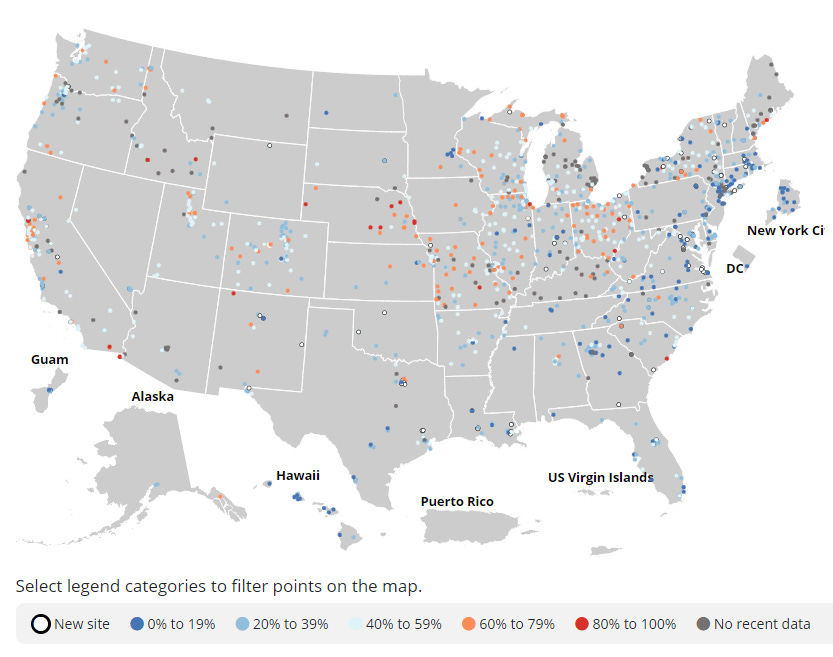
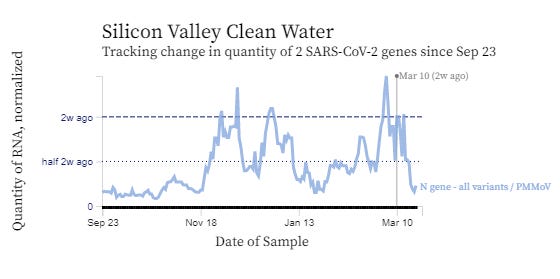

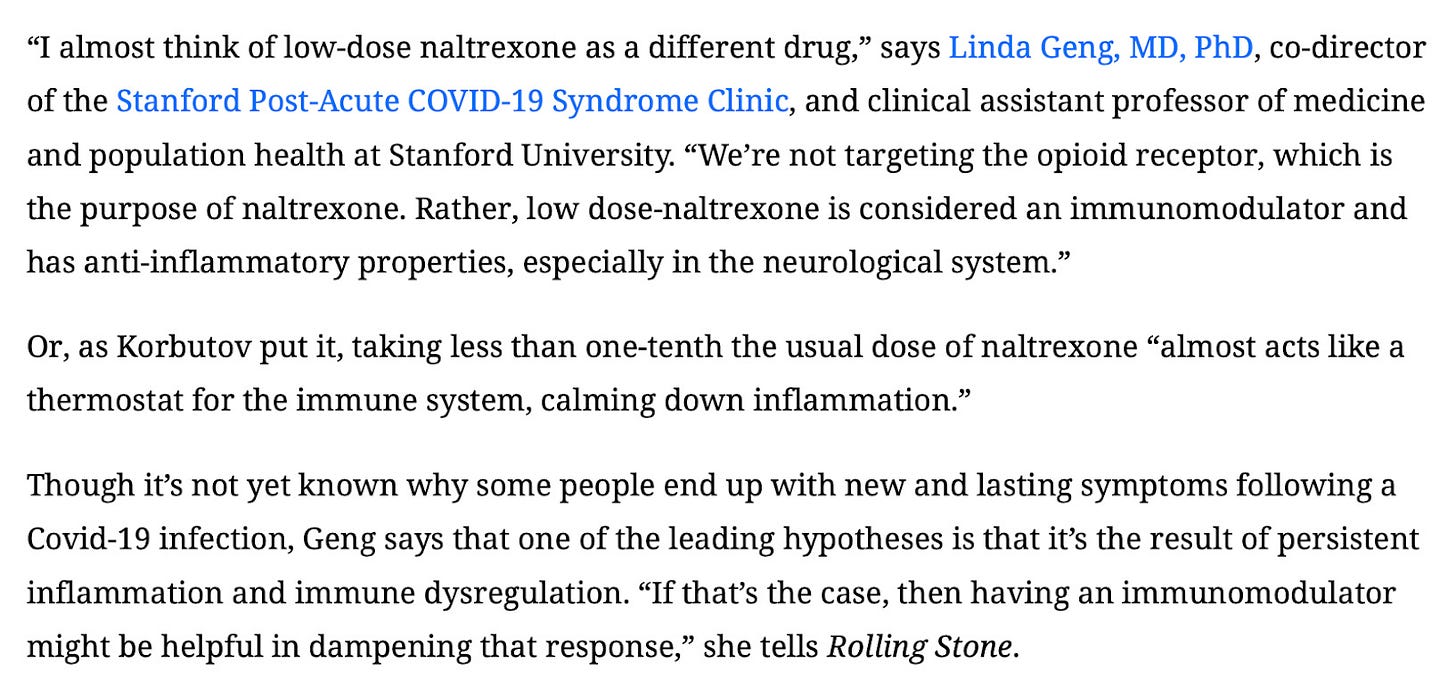
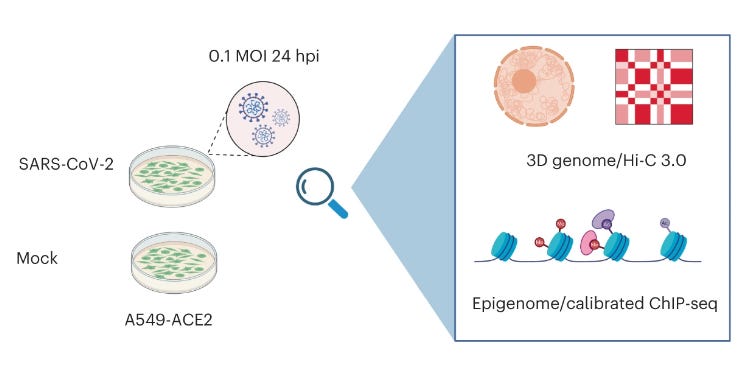





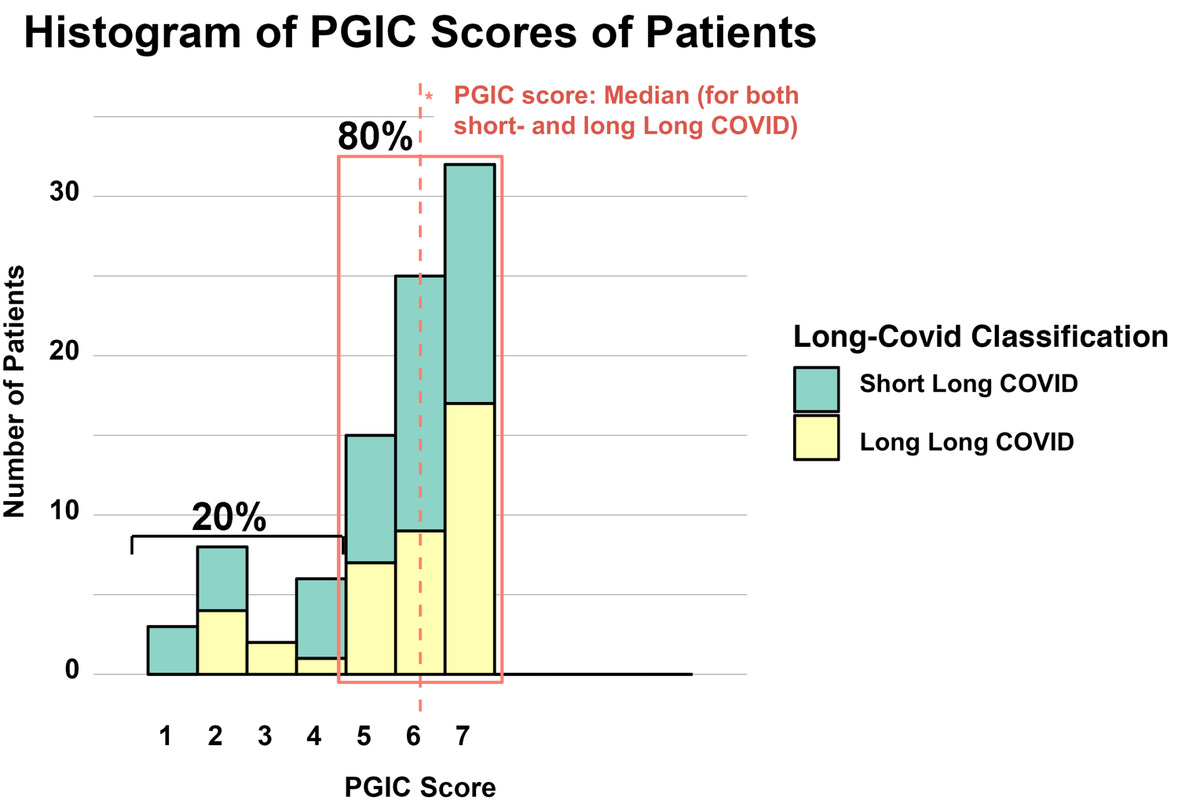










Fantastic review of current literature.